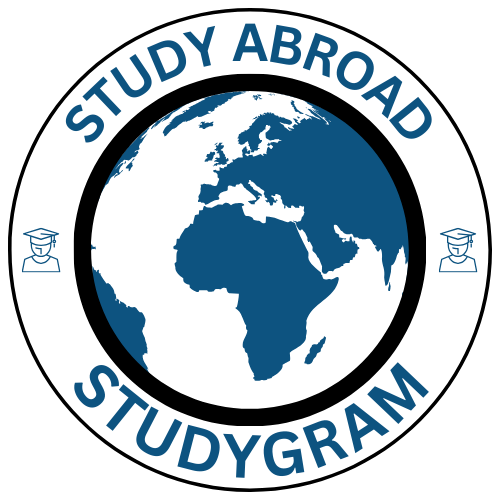- Country Profile
- Student Life
- Education
- Requirements
- Costs
- FAQs
- prev
- next
Intro
Australia: A Top Destination for Quality Education and Global Opportunities

Study in Australia at Top Accredited Universities
Australia is celebrated worldwide for its exceptional education system, vibrant student life, and stunning natural beauty. International students are increasingly choosing Australia for their studies due to its high academic standards, innovative teaching methods, and diverse cultural environment. Whether you are looking for undergraduate or postgraduate programs, Australia offers numerous opportunities to enhance your academic and professional prospects.
Top Reasons to Study in Australia
- World-Class Education: Australian universities are renowned for their high educational standards, innovative research, and excellent teaching quality. Many institutions are consistently ranked among the top universities globally, providing a strong foundation for your academic and professional future.
- Diverse Course Offerings: From business and engineering to arts and health sciences, Australian universities offer a wide range of courses and programs. Whether you’re pursuing a diploma, undergraduate degree, or postgraduate qualification, you’ll find programs tailored to meet your career goals and interests.
- Career Opportunities: Graduates from Australian institutions are highly sought after by employers worldwide. The country’s strong ties with global industries and its emphasis on practical experience ensure that students are well-prepared for the international job market. Study in Australia opens doors to these global career prospects.
- Generous Scholarships and Financial Aid: Australia provides substantial financial support for international students, including government-funded scholarships like Australia Awards Scholarships, Endeavour Postgraduate Scholarship Awards, and International Postgraduate Research Scholarships (IPRS). Many universities also offer their own scholarships to attract talented students.
- Multicultural Environment: With a welcoming and inclusive atmosphere, Australia attracts over 550,000 international students each year. The diverse cultural landscape provides a rich, global perspective and fosters a supportive community for students from all backgrounds.
- High Quality of Life: Australian cities are known for their safety, cleanliness, and high quality of life. With vibrant cityscapes, beautiful natural surroundings, and a high standard of living, students enjoy a well-rounded and fulfilling lifestyle.
- Post-Graduation Work Opportunities: Australia offers post-study work visas that allow international graduates to gain valuable work experience after completing their studies. This opportunity enhances career prospects and provides practical experience in a global context.
Climate and Lifestyle
Australia boasts a varied climate that offers something for everyone.
- Sydney and Brisbane: These cities enjoy a temperate climate with mild winters and warm summers, ideal for those who enjoy outdoor activities and beach life.
- Melbourne: Known for its cooler temperatures and four distinct seasons, Melbourne offers a vibrant cultural scene and is often regarded as Australia's cultural capital.
- Perth: Located on the western coast, Perth benefits from a Mediterranean climate with hot, dry summers and mild, wet winters, perfect for those who love sunny weather.
- Adelaide: This city has a Mediterranean climate, with hot, dry summers and cool winters, providing a pleasant environment year-round.
No matter where you choose to study, Australia's climate enhances the overall experience, allowing students to enjoy both academic and recreational activities throughout the year.
Study Costs and Other Expenses
To study in Australia is less expensive as compared to the other popular study destinations which add one more point to Australia’s attractiveness. While maximum study destination country’s reputation lies in their higher cost, Australia holds an exemption from this rule. Both tuition fees and living expenses are at a certain level more affordable than countries like in the UK, USA for example. For sure, in big cities like Sydney or Melbourne may end up costing a bit more to live in, but the cost of living is no different than in a major city in your home country. Moreover, based on present regulations in Australia, foreign students are also permitted to work part-time while they’re studying. Learn more.
Top Australian Universities Recognized Worldwide
Australia is home to several top-ranked universities known for their academic excellence and global recognition. Here are some prominent institutions:
- University of Sydney: Located in Sydney, ranked #18 in QS World University Rankings 2025.
- University of Newcastle: Situated in Callaghan, Newcastle, ranked #129 in QS World University Rankings 2025.
- Curtin University: Based in Bentley and Perth, Western Australia, ranked #174 in QS World University Rankings 2025.
- Griffith University: Found in Queensland, ranked #255 in QS World University Rankings 2025.
- La Trobe University: Located in Melbourne, ranked #217 in QS World University Rankings 2025.
- Murdoch University: Based in Perth, ranked #=436 in QS World University Rankings 2025.
- Edith Cowan University: Situated in Perth & Bunbury, ranked #=516 in QS World University Rankings 2025.
- University of Adelaide: Located in Adelaide, South Australia , ranked #=82 in QS World University Rankings 2025.
Globally Recognized Courses and Institutions
Australian universities offer a variety of programs that are highly regarded internationally. Programs in engineering, health sciences, and accounting consistently receive top rankings in global university lists. These programs are designed to equip students with the skills needed to excel in their chosen fields. Learn more.
Check out requirements to Study in Australia.
Scholarships and Financial Aid
Australia is committed to supporting international students through a range of scholarships and financial aid options. The Australian government allocates up to $250 million annually for international student scholarships. Notable scholarships include:
- Australia Awards Scholarships
- Endeavour Postgraduate Scholarship Awards
- International Postgraduate Research Scholarships (IPRS)
Many Australian universities also provide scholarships funded by their own budgets. For detailed information on available scholarships and application procedures, contact Studygram.
Five Quick Facts About Australia
- Stunning Natural Beauty: Australia boasts some of the world's most beautiful landscapes, including beaches, national parks, and vibrant urban areas.
- Top Study Destination: Ranked among the top 5 study destinations globally, Australia is renowned for its quality education and student experience.
- Seamless Education Pathways: Offers clear pathways from diploma to degree programs, allowing students to advance their education smoothly.
- Competitive Costs: The cost of living and studying in Australia is competitive, providing good value for the quality of education and lifestyle.
- Welcoming Environment: Australia’s multicultural and friendly atmosphere attracts over 717,587 international students annually.
Your Path to Studying in Australia with Studygram
- Research Your Destination: Explore Australian cities and universities to find the best fit for your academic and personal preferences. Major cities like Melbourne, Sydney, Brisbane, Adelaide, and Perth each offer unique opportunities.
- Consult with Studygram: Our expert team provides personalized advice on choosing the right course, university, and scholarship options to ensure a successful study experience.
- Submit Your Application: We assist with the entire application process, helping you meet all requirements and enhance your chances of acceptance.
- Accept Your Offer: Receive guidance on accepting your offer letter and understanding any conditions associated with your admission.
- Prepare for Your Move: Get ready for your new adventure with tips on improving your English skills, learning about Australian culture, and planning your relocation.
- Apply for Your Student Visa: Studygram offers support with the student visa application process, ensuring you navigate requirements efficiently and smoothly.
For a rewarding and transformative educational journey, Australia stands out as a premier choice for international students. Contact Studygram today to begin your path to studying in Australia!
Life in Australia

Choosing to study in Australia will provide you with wonderful opportunities and experiences, as well as a world-class education. Here are four reasons why you should consider Australia as your study-abroad destination.
Lively and Multicultural Lifestyle
Australians are kind and friendly, with an immense passion for sport, food, and entertainment. Just like on campus, you will meet people from different cultures and faiths across Australia. If you wish to experience bustling city life, big cities like Melbourne and Sydney are great examples of a fantastic contemporary lifestyle, from modern art museums and cafés to beautiful city parks. Enjoy food festivals such as Perth's Margaret River Gourmet Escape and the Melbourne Food and Wine Festival, and visit one of the 60 designated wine regions across the country. You can also experience Indigenous culture across Australia.
Australian Culture
Australian Society is friendly, secure, advanced, and harmonious. Many cultural groups are represented in Australia, which makes it among the most culturally diverse nations in the world. The proximity to the area of the country affects the economy, its own culture, and way of life. Australia's government emphasizes the following rules for better living:
- Respect for liberty, dignity, and value of the person
- Freedom of association and speech, religion, and secular authorities
- Support for parliamentary democracy and the rule of law
- Equality under the law
- Equality of opportunity
- Peacefulness
- Equality of Women and Men
- A spirit of egalitarianism that embraces mutual respect, tolerance, and empathy for people in need.
Famous Activities to do in Australia
There are several means to be involved in the Australian culture, from taking part in amazing theatre events to doing adventurous hiking or enjoying barbequing on scenic beaches. Surfing and other water activities are highlights of Australia. It has been stated that Australia is still an easy place to become a tourist on a budget.
Reasonable Study Costs
Study costs in Australia are considerably lower than in other major destinations such as the United States and the United Kingdom. Fees for secondary schools in Australia start from $AUD7800 and can reach around $AUD30,000 per year. An undergraduate program can cost you from $AUD15,000 to $AUD33,000 per year and postgraduate tuition fees range from $AUD20,000 to $AUD37,000 annually. Vocational Education and Training (VET) and Technical and Further Education (TAFE) courses start at around $AUD4000 while fees for foundation studies start from $AUD15,000 per year. Planning to take up an English language course? These courses start from only $AUD300 per week depending on the course length.
Transportation in Australia
Australia's public transport system includes trains, buses, trams and ferries. There are also taxi services in all cities and major towns. The types of transport available vary between cities. Your education provider will be able to give you details of local public transport when you arrive.
International students may drive in Australia on a valid overseas driver's license, which you must carry with you when you are driving. If your license is not printed in English, you must also carry either an English translation or an International Driving Permit (IDP). Like Kuwait, Australians also drive on the left-hand side of the road. There are different driving regulations in each state and territory
Beautiful Weather and Landscapes
Australia has diverse landscapes, beautiful coastlines, vast outback, and modern cities, as well as unique marsupials such as kangaroos, koalas, wombats, and quokkas. Studying in Australia is a ticket for you to visit natural attractions, including the Blue Mountains in New South Wales, Uluru-Kata Tjuta National Park in the Northern Territory, the Great Barrier Reef in Queensland, and Rottnest Island in Western Australia. A great benefit of studying in Australia is being able to experience the sunny weather and laid-back attitude for which Australia is well known.
Submit an Inquiry
Educational System in Australia

The Australian Qualifications Framework (AQF), a unified network of national qualifications of schools, vocational education, and training, governs post-compulsory education and the higher education industry. There are two sectors in Post-secondary education: high education and vocational/technical education. Australia's vocational education and training (VET) sector must satisfy the nationally agreed criteria of the Australian Quality Training Framework (AQTF).
Altogether there are 43 Australian universities, and other well-known higher education institutions, in many regional centres including the capital city of Australia. Their courses are of very high standard and of high value worldwide to meet the employment criteria.
School Education (Primary and Secondary)
Australia’s school education system is consistent across the country, with minor variations between states and territories. Schooling is compulsory for children aged six to sixteen, covering both primary and secondary education. The structure of school education is as follows:
- Primary School: Lasts for seven or eight years, starting from Kindergarten/Preparatory to Year 6 or 7.
- Secondary School: Comprises three or four years, from Years 7 to 10 or 8 to 10.
- Senior Secondary School: Includes the final two years, Years 11 and 12, where students typically focus on preparing for tertiary education or entering the workforce.
Tertiary Education: Higher Education and Vocational Education and Training (VET)
Tertiary education in Australia encompasses both higher education and vocational education and training (VET). The VET sector is essential for equipping students with practical skills and must comply with the Australian Quality Training Framework (AQTF), ensuring that it meets national standards.
Higher Education
Australia is home to 43 universities, most of which are public, along with a number of other reputable higher education institutions located across the country, including in regional centers and the capital city. Australian universities are renowned for their high academic standards, offering qualifications that are highly valued worldwide. These institutions provide a wide range of undergraduate and postgraduate courses, helping students to develop the knowledge and skills needed to meet global employment criteria.
Vocational Education and Training (VET)
The VET sector in Australia plays a critical role in providing students with practical and industry-specific skills. VET courses are designed to meet the needs of various industries and are recognized for their focus on hands-on training. The AQF ensures that VET qualifications are standardized and internationally recognized, allowing students to gain valuable skills that can be applied globally.
Language of Instruction
English is the primary language of instruction across Australia, making it essential for international students to have a good command of the language. Many institutions also offer bilingual programs or courses in other languages to cater to the diverse student population.
The Australian Qualifications Framework (AQF)
The AQF is a cornerstone of the Australian education system, linking school, vocational, and higher education qualifications into a cohesive national system. The framework has 10 levels, ranging from the Senior Secondary Certificate of Education to doctoral degrees. This structured approach allows students to move easily between different levels of education and institutions, provided they meet student visa requirements. The AQF offers flexibility and choice in career planning, ensuring that qualifications are aligned with both further study and professional life.
Universities and Higher Education Institutions
Australia's higher education sector is robust, with 43 universities spread across the country. These include two private universities, with the rest being public institutions. Australian universities are known for their modern facilities, innovative research, and strong industry connections, which contribute to their global reputation.
Popular Courses for International Students
Australia offers a wide array of courses that attract international students from around the world. Some of the most popular fields of study include:
- Administration: Courses that focus on management and organizational skills.
- Accounting: Programs designed to develop financial management and auditing expertise.
- Agriculture: Courses that cover farming practices, agribusiness, and sustainability.
- Architecture: Studies that focus on building design, urban planning, and construction.
- Building: Courses related to construction management, property development, and civil engineering.
- Environmental Studies: Programs that emphasize sustainability, conservation, and environmental management.
- Computer Sciences: Courses covering software development, cybersecurity, and data analytics.
- Engineering: A broad field including civil, mechanical, electrical, and environmental engineering.
- Health Sciences: Programs in medicine, nursing, public health, and allied health professions.
- Finance: Courses focused on financial analysis, investment, and banking.
- Humanities: A wide range of studies in history, literature, philosophy, and cultural studies.
- Law: Programs that provide in-depth knowledge of legal principles and practices.
- Journalism: Courses that train students in media, communication, and reporting skills.
- Psychology: Studies focusing on human behavior, mental health, and clinical practices.
Why Choose Australia for Your Education?
Australia is a preferred destination for international students due to its world-class education system, cultural diversity, and high standard of living. The country's education institutions are known for their strong emphasis on research, innovation, and practical skills. With the AQF providing a clear and standardized path through various levels of education, students can confidently plan their academic journey, knowing that their qualifications will be recognized globally.
Submit an Inquiry
Requirements for Study in Australia

Applying to study in Australia is a straightforward process, though it does require attention to specific entry requirements, including visas and academic qualifications. Here's a deeper look into the conditions and requirements for studying in Australia:
What are the Conditions and Requirements of Study in Australia?
Let’s take a look at the steps that you need to take to study in Australia.
English language proficiency
To study in Australia, international students must demonstrate English language proficiency. This is particularly important for obtaining a student visa. The following English language tests are accepted by Australian educational institutions and for visa purposes:
What English language tests are acceptable for Australian student visas?
There are five different tests accepted for Australian student visa applications:
- Test of English as a Foreign Language (TOEFL)
- International English Language Testing System (IELTS)
- Cambridge English: Advanced (CAE)
- Occupational English Test (OET)
- Pearson Test of English (PTE).
Each institution might have specific score requirements, so it's essential to check the requirements of the particular university or course you are applying to.
Academic Requirements
The academic requirements vary depending on the level of study:
- Undergraduate Courses: Admission typically requires the completion of the Australian Senior Secondary Certificate of Education (Year 12) or an equivalent qualification, such as the GCE A Levels with passes in relevant subjects. Some courses may also have prerequisite subjects.
- Postgraduate Courses: Generally, a completed undergraduate degree is necessary. Some programs may also consider relevant work experience or research ability in lieu of academic qualifications.
- Vocational Education and Training (VET): Entry into VET programs usually doesn't require entrance exams, but certain courses may require specific prerequisite subjects or work experience.
Other Tests GMAT and Requirements
- GMAT (Graduate Management Admission Test): This is often required for entry into management programs, particularly MBAs.
- GRE (Graduate Record Examination): Although not commonly required, submitting a GRE score can be beneficial, especially if you've scored well.
- Work Experience: Many professional and vocational courses, like MBAs or master's programs in fields such as information studies, often require relevant work experience, typically ranging from 2-3 years.
How Can I Apply for Scholarships in Australia?
Australia offers a variety of scholarships for international students, provided by both the government and individual institutions. These scholarships can significantly reduce the financial burden of studying abroad. To apply for scholarships, it's crucial to research the specific scholarships available at the institutions you're interested in and to contact the scholarship offices directly for detailed information on eligibility and application procedures.
Application Process
- Research Courses and Institutions: Start by selecting the course and institution that align with your career goals and academic background. Consider factors like location, campus facilities, and support services.
- Check Entry Requirements: Review the specific academic and English language requirements for your chosen course and institution.
- Prepare Your Documents: Gather all necessary documents, including academic transcripts, English language test results, and any other required certifications.
- Submit Your Application: Most institutions in Australia allow you to apply directly through their websites. Alternatively, you can use an education agent who specializes in Australian studies.
- Apply for a Visa: Once you receive an offer of admission, you can apply for a Student Visa (subclass 500). This visa requires a Confirmation of Enrolment (CoE) and meeting other visa requirements such as financial capacity, health insurance, and English proficiency.
By following these steps and ensuring you meet all the necessary requirements, you can successfully apply to study in Australia and take the first step toward an enriching academic experience abroad.
Submit an Inquiry
Study Cost in Australia

Living conditions in Australia are quite excellent. When it comes to wellbeing Australia ranks at the top five. Residential and housing facilities, public transportation, water, and food are all top quality, and conveniences are available everywhere. Students get a secure atmosphere, a variety of leisure and sporting activities, and low crime rates.
Here we provide an estimate of the study and living costs that you can expect in Australia. Australia's high-quality courses, supportive institutions, livable cities, and excellent lifestyle make it an economical option for international students. Please note that course fees can vary widely and should always be researched with the relevant institution. Your living costs will vary according to factors such as your lifestyle and location.
Study Costs in Australia
Below is the list of Education programs and Average tuition costs ($AUD)
The cost of tuition varies significantly based on the level of study and the chosen institution. Here’s a detailed breakdown:
- School Education: AU$14,000 - AU$30,000 per year
- Tuition for school education in Australia can vary depending on the school type and its location. Private and international schools tend to be on the higher end of this range.
- English Language Courses: AU$300 per week
- English language courses are typically charged on a weekly basis. The total cost will depend on the duration of the course, which can range from a few weeks to several months.
- Vocational Education and Training (VET): AU$12,000 - AU$40,000 annually
- VET programs, including Certificates I to IV, Diplomas, and Advanced Diplomas, are designed to provide practical skills and qualifications. Fees vary based on the course complexity and institution.
- Bachelor’s Degree: AU$20,000 - AU$45,000 per year
- The cost of a Bachelor’s degree can differ greatly depending on the university and the field of study. Degrees in fields such as arts and humanities are generally less expensive compared to those in engineering or medical sciences.
- Master’s Degree: AU$22,000 - AU$50,000 per year
- Postgraduate tuition fees are generally higher than undergraduate fees. The exact amount depends on the program’s duration, its specialization, and the institution.
- Doctoral Degree: AU$20,000 - AU$42,000 per year
- Doctoral programs often have varying costs based on the research field and the length of the program. Some programs may offer scholarships or stipends that can help reduce the financial burden.
Student Accommodation Costs
Accommodation costs vary depending on the type of housing and its location. Here’s a detailed look:
- Hostels and Guesthouses: AU$90 - AU$150 per week
- Budget-friendly options for students who prefer short-term stays or are new to the city.
- Shared Rentals: AU$95 - AU$215 per week
- Sharing a rental with other students can be a cost-effective way to live while benefiting from a social environment.
- On-Campus Housing: AU$110 - AU$280 per week
- On-campus accommodations provide convenience but can vary in price based on room type and facilities.
- Homestay: AU$235 - AU$325 per week
- Living with a local family offers cultural immersion and typically includes meals, which can be beneficial for international students.
Student Visa and Health Insurance
To study in Australia, you will need to secure a student visa and obtain health insurance. Here’s what you need to know:
- Student Visa: AU$620
- This visa allows you to live and study in Australia for the duration of your course. Ensure you meet all visa requirements and apply well in advance.
- Overseas Student Health Cover (OSHC): AU$500 annually
- OSHC is mandatory and covers medical expenses while studying in Australia. The cost may vary based on the type of coverage and provider.
Living Costs in Australia
When planning your budget for living in Australia, it's important to consider the following average weekly expenses. These costs can vary depending on your location, lifestyle, and personal preferences:
- Groceries and Eating Out: Expect to spend between AU$180 to AU$480 per week. This includes the cost of buying groceries from supermarkets and occasionally dining out at cafes, and restaurants, or ordering takeout. Larger cities or frequent dining out will push this cost toward the higher end.
- Gas and Electricity: Utilities can range from AU$40 to AU$150 per week. This depends on your energy consumption, the size of your accommodation, and the climate. If you're living in a colder area or using air conditioning frequently, expect to be on the higher end of this range.
- Phone and Internet: Staying connected in Australia costs around AU$45 to AU$95 per week. This covers your mobile phone plan and home internet. Costs can vary depending on your data usage, the type of plan you choose, and whether you bundle services together.
- Public Transport: Using public transport like buses, trains, and trams typically costs AU$20 to AU$60 per week. The exact amount depends on the city you're living in and how frequently you travel. Some cities offer discounted rates for students, so it’s worth checking out available concessions.
- Car Expenses (After Purchase): If you own a car, weekly costs can range from AU$150 to AU$300. This includes fuel, maintenance, insurance, registration, and parking fees. Owning a car is generally more expensive than using public transport, especially in urban areas.
- Entertainment: Enjoying leisure activities such as movies, sports, dining out, or socializing typically costs between AU$80 to AU$180 per week. Entertainment expenses can vary widely based on your lifestyle choices, such as how often you go out or attend events.
Submit and Inquiry
FAQS
Q: Why should I choose Australia for my studies?
A: Australia offers world-class education, vibrant multicultural cities, and a high quality of life. It's home to several top-ranked universities and provides excellent post-study work opportunities.
Q: What is the cost of living in Australia for international students?
A: The cost of living varies by city, with students typically needing AUD 20,000 to AUD 30,000 per year for accommodation, food, transportation, and other expenses.
Q: Can I work while studying in Australia?
A: Yes, international students can work up to 48 hours per fortnight during study periods and unlimited hours during breaks.
Q: What are the visa requirements for studying in Australia?
A: You need a Student Visa (Subclass 500), which requires a Confirmation of Enrollment (CoE), proof of financial capacity, health insurance, and English proficiency.
Q: Can I extend my stay in Australia after completing my studies on a Student Visa (Subclass 500)?
A: After completing your studies, you may be eligible to apply for a Temporary Graduate Visa (Subclass 485), which allows you to stay in Australia temporarily to work and gain practical experience. This visa can be a pathway to permanent residency for some graduates.


